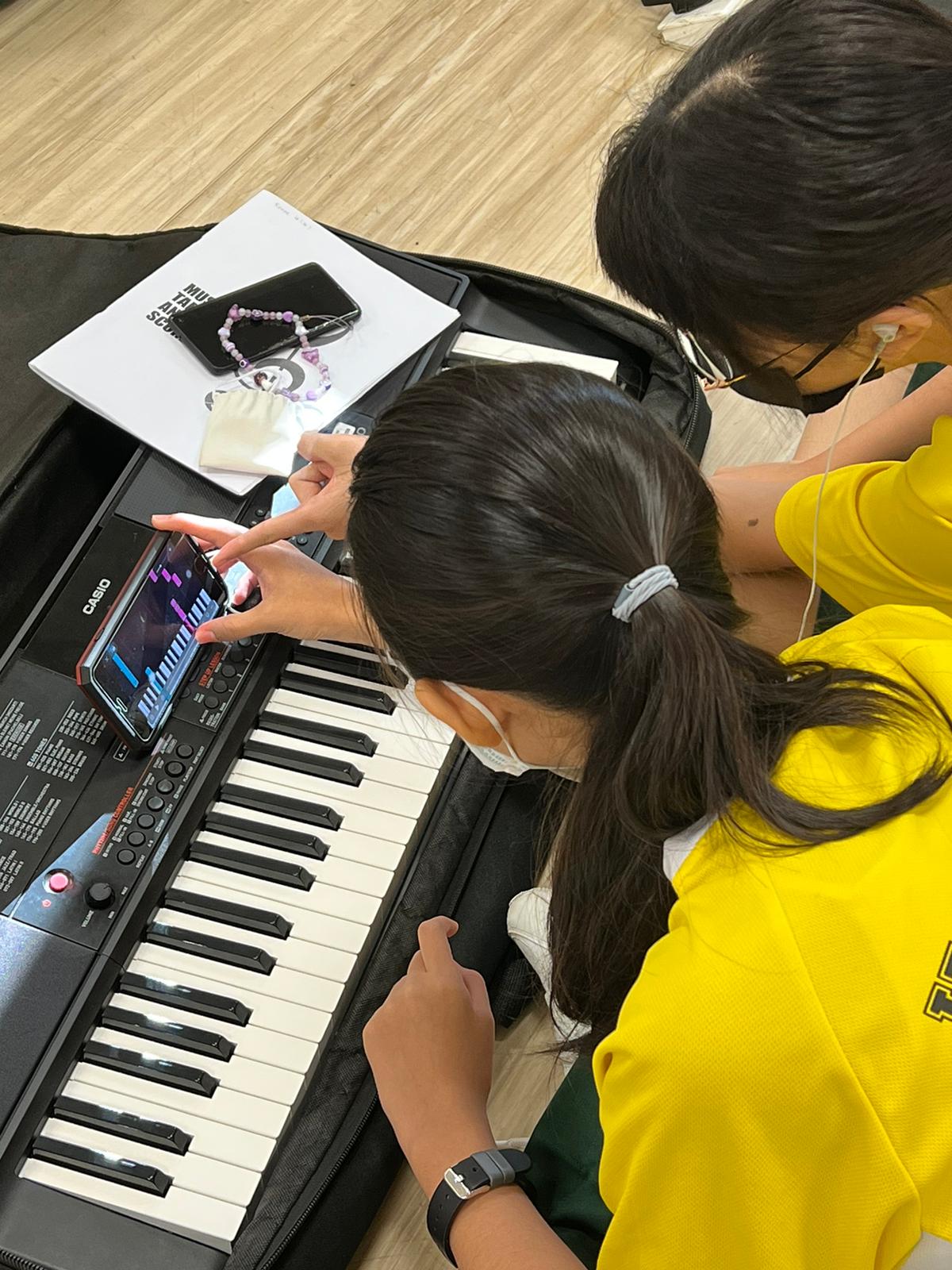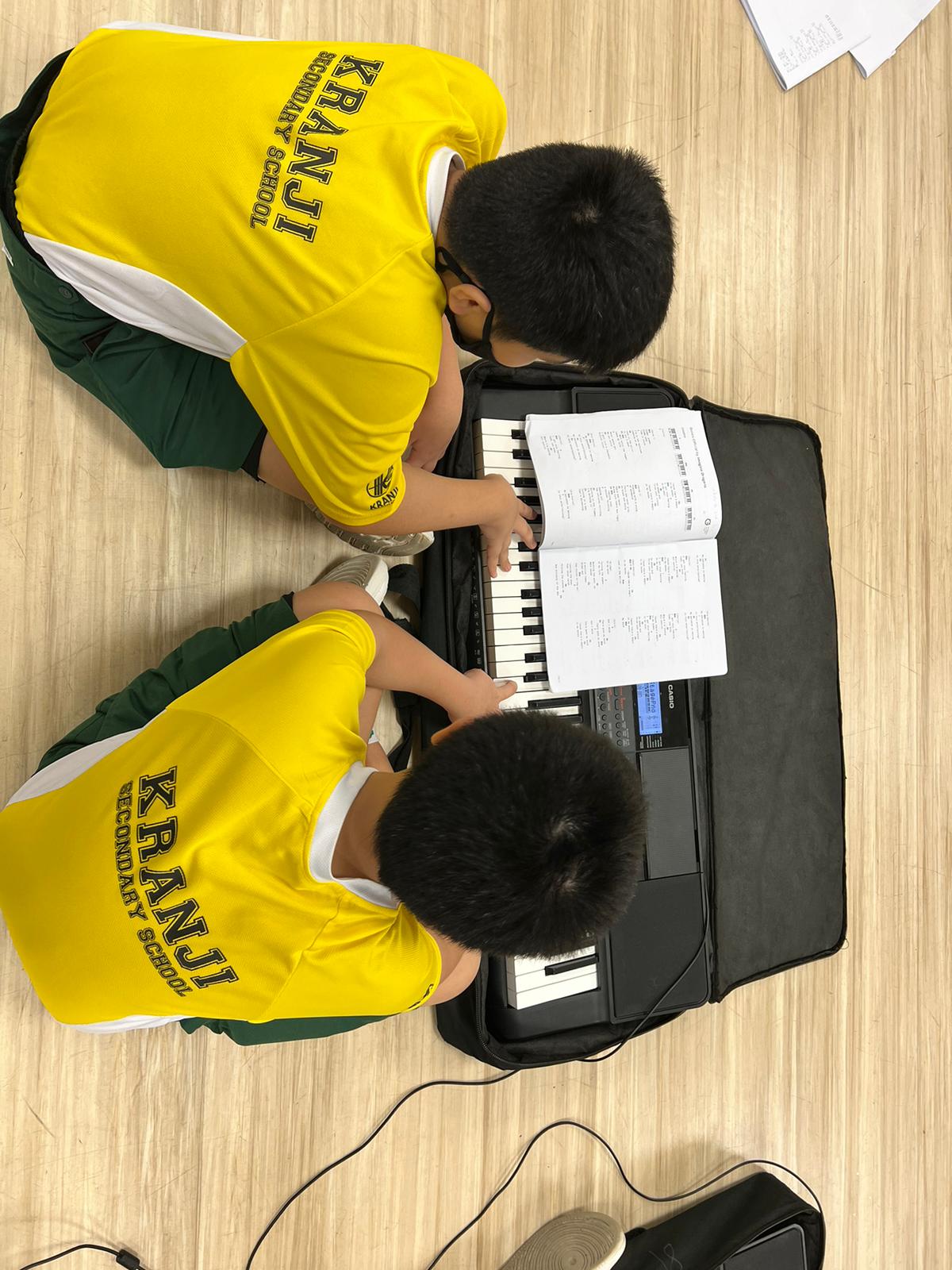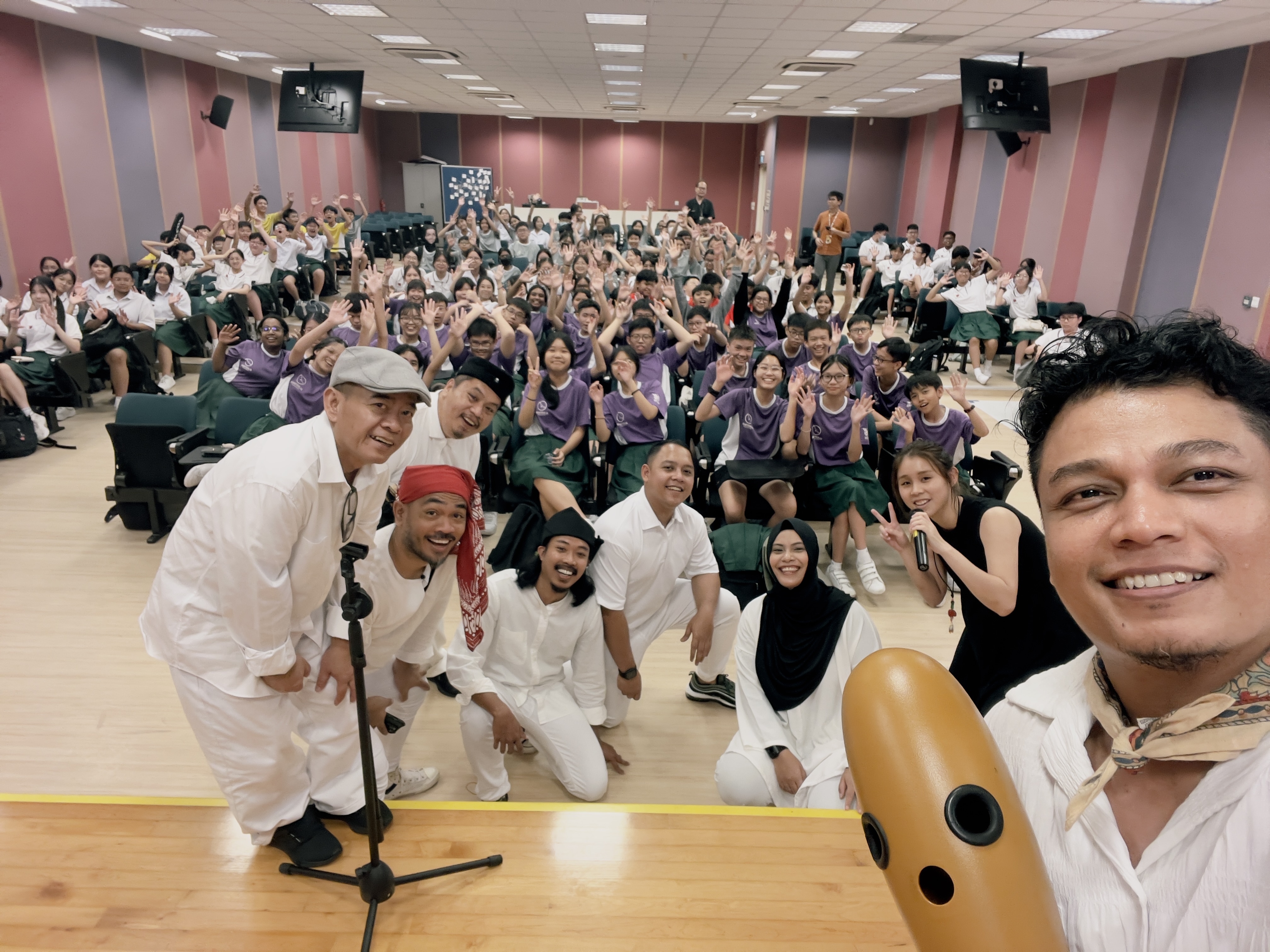Aesthetics
The Aesthetics Department
The Aesthetics Department encompasses four dynamic subjects: Art, Design & Technology (D&T), and Nutrition & Food Science (NFS) and Music. Within these subjects, students embark on a journey of self-expression, exploration, and practical application. From the visual realms of painting and sculpture to the harmonious melodies of music, and the functional elegance of design, to the science behind nutrition and food, our department offers a diverse array of avenues for both artistic and scientific expression. Students learn various skills such as prototyping, culinary & food science experimental skills, music and art making. They also learn project management skills, creativity and empathy, through learning journeys, workshops, community projects and competitions.
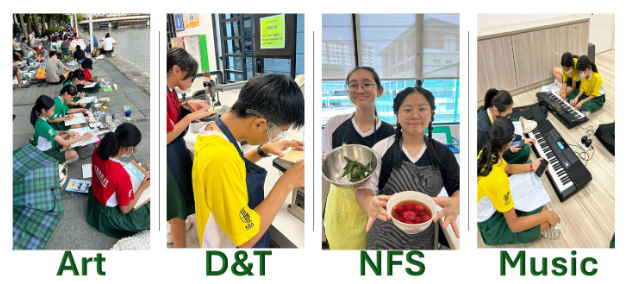
In addition to the four academic subjects, the department runs two key programs—'Arts-experiences' and 'Kranji Got Talent'—to inspire students to appreciate the beauty of the world and contribute through their unique talents and perspectives.
Artsperiences
In 2024, the department launched a pilot initiative offering a variety of workshops to cater to students' diverse interests. These aesthetic workshops cover a range of activities, including sand art, ceramics making, drumming, and more. Students can sign up for any workshop that appeals to their interests.
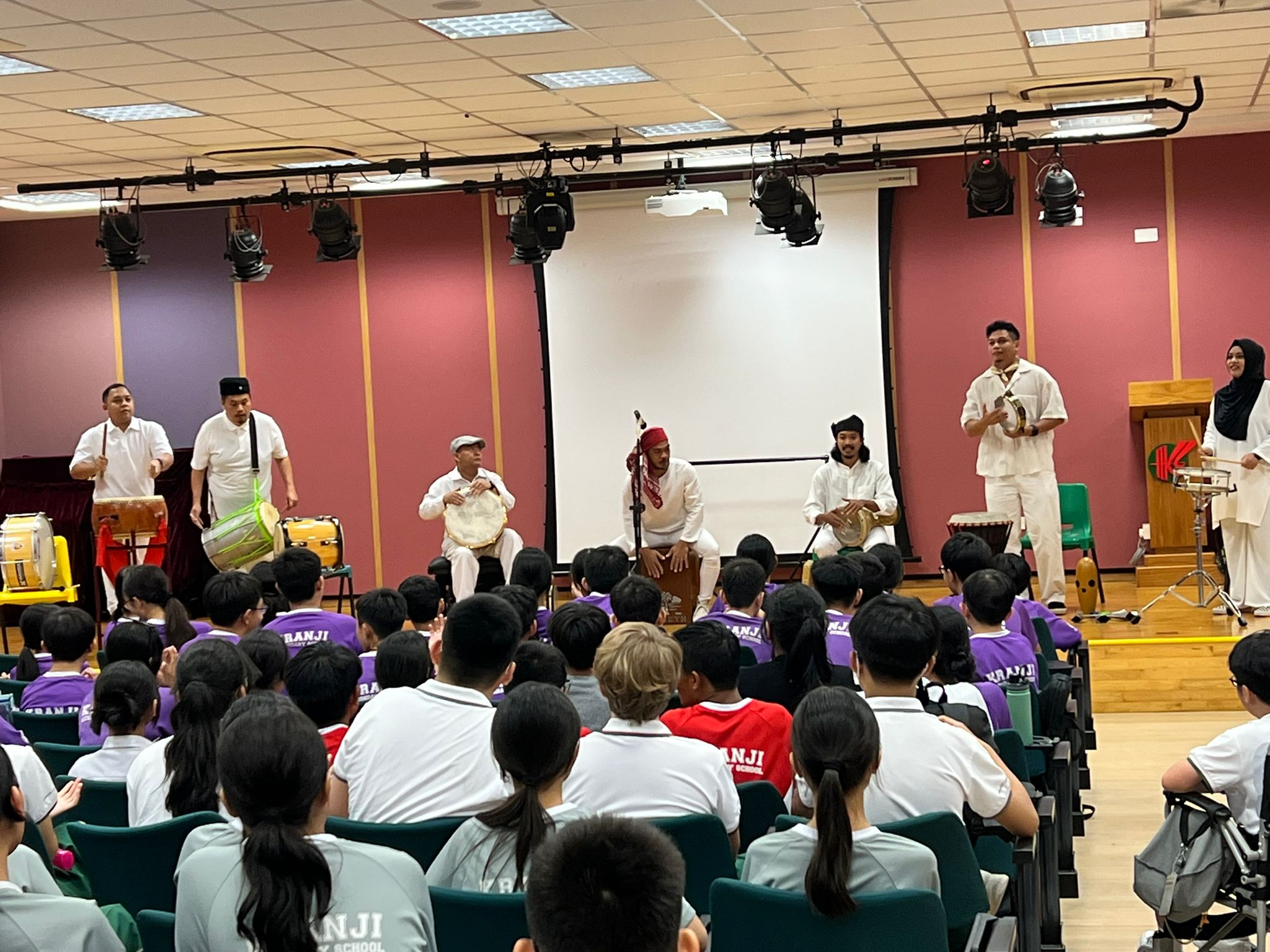
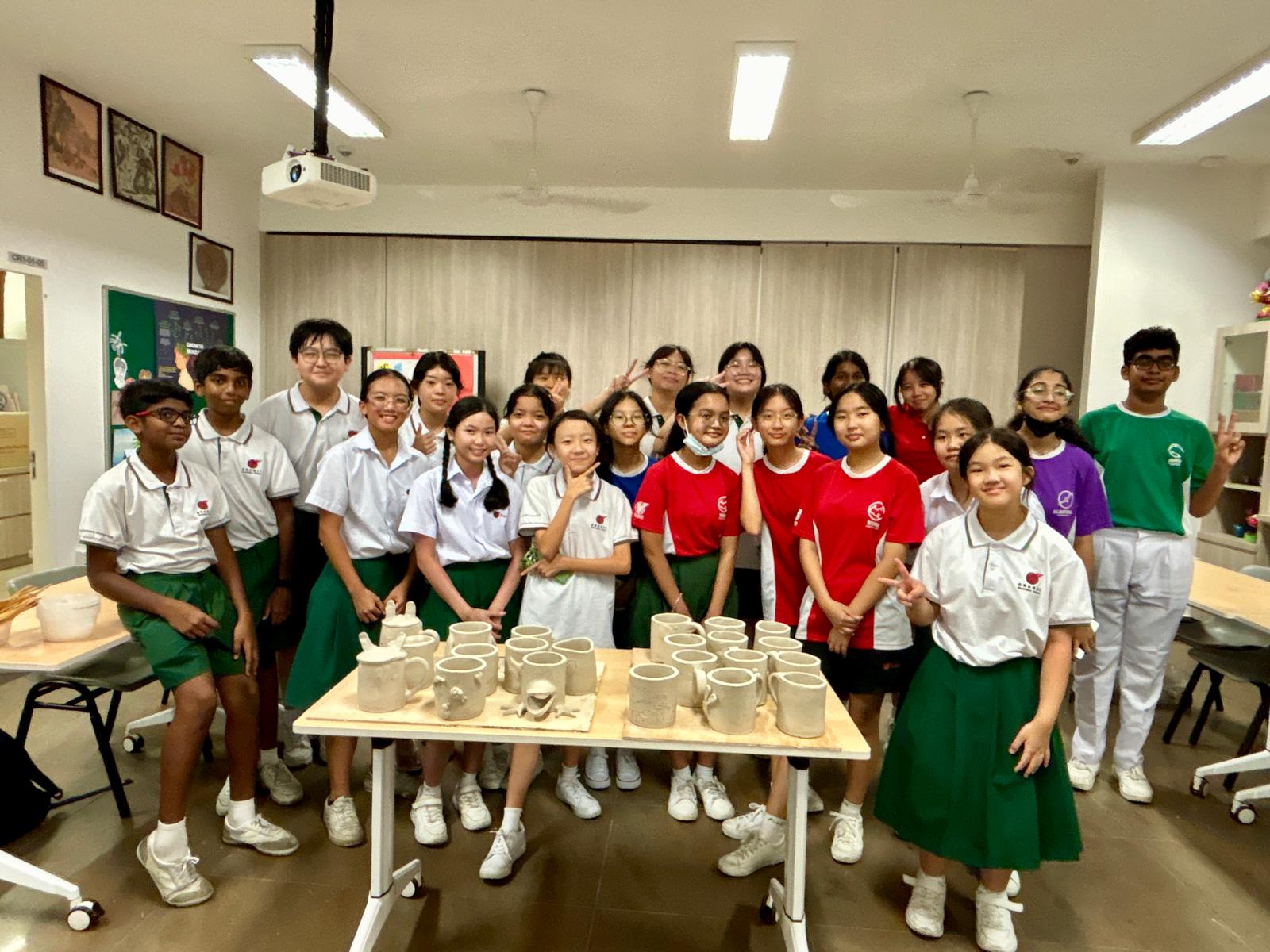
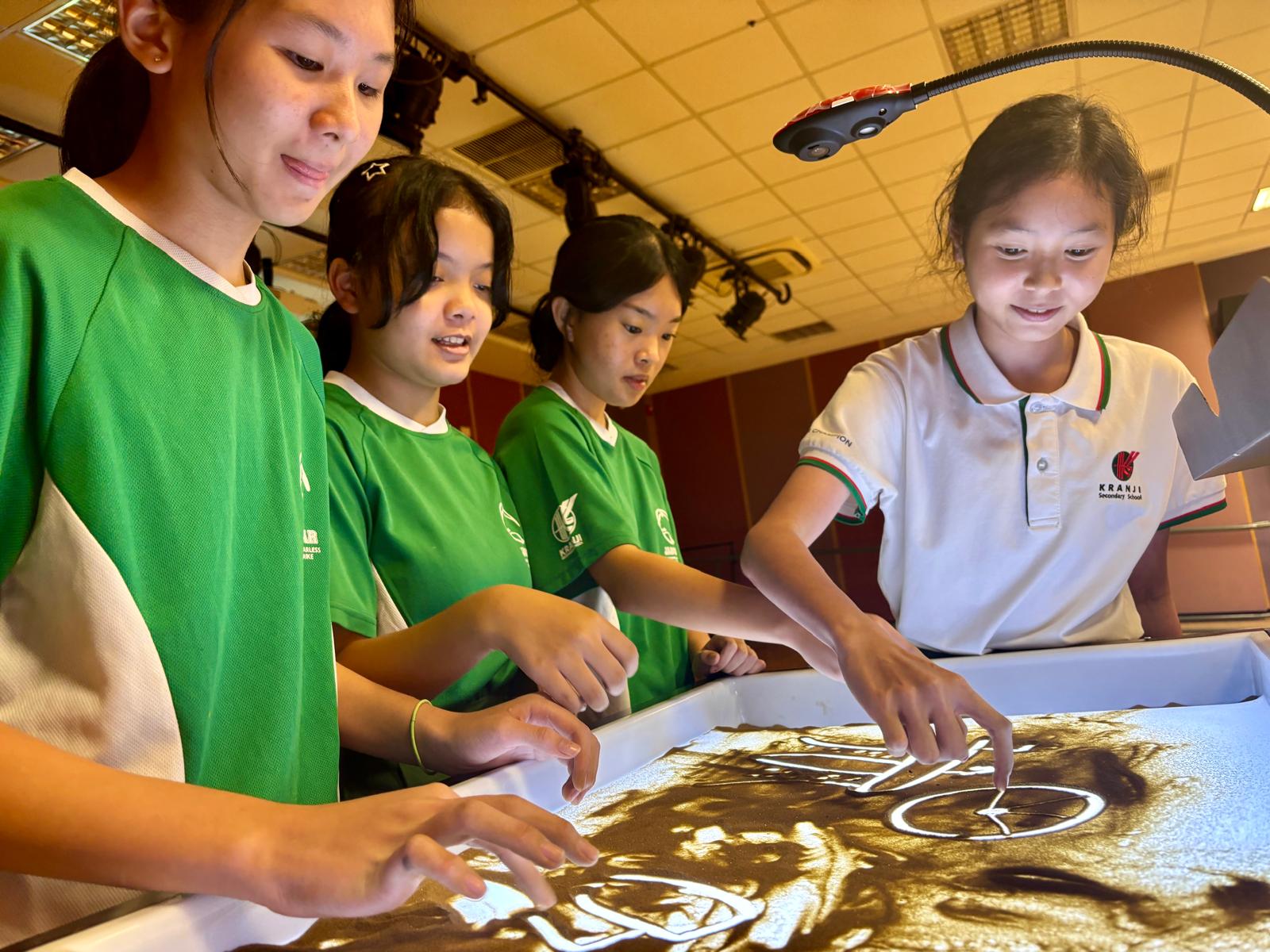
Kranji Got Talent (KGT)
Kranji Got Talent is an annual event that celebrates the diverse artistic talents of our students. Each year, auditions bring excitement to the school as students showcase their skills in areas like singing, dancing, DJing, and more. The event provides a platform for aspiring performers while allowing the school community to experience the vibrant and dynamic culture. Finalists from the auditions have the opportunity to perform at major school events, where they are met with enthusiastic support from both students and teachers.
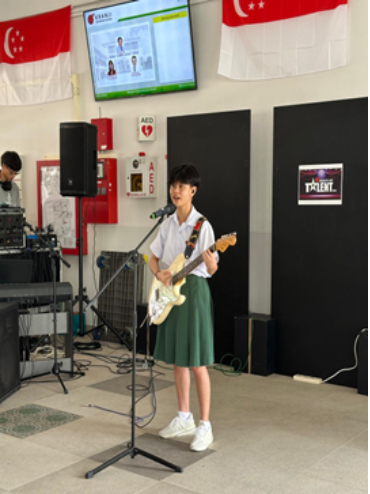
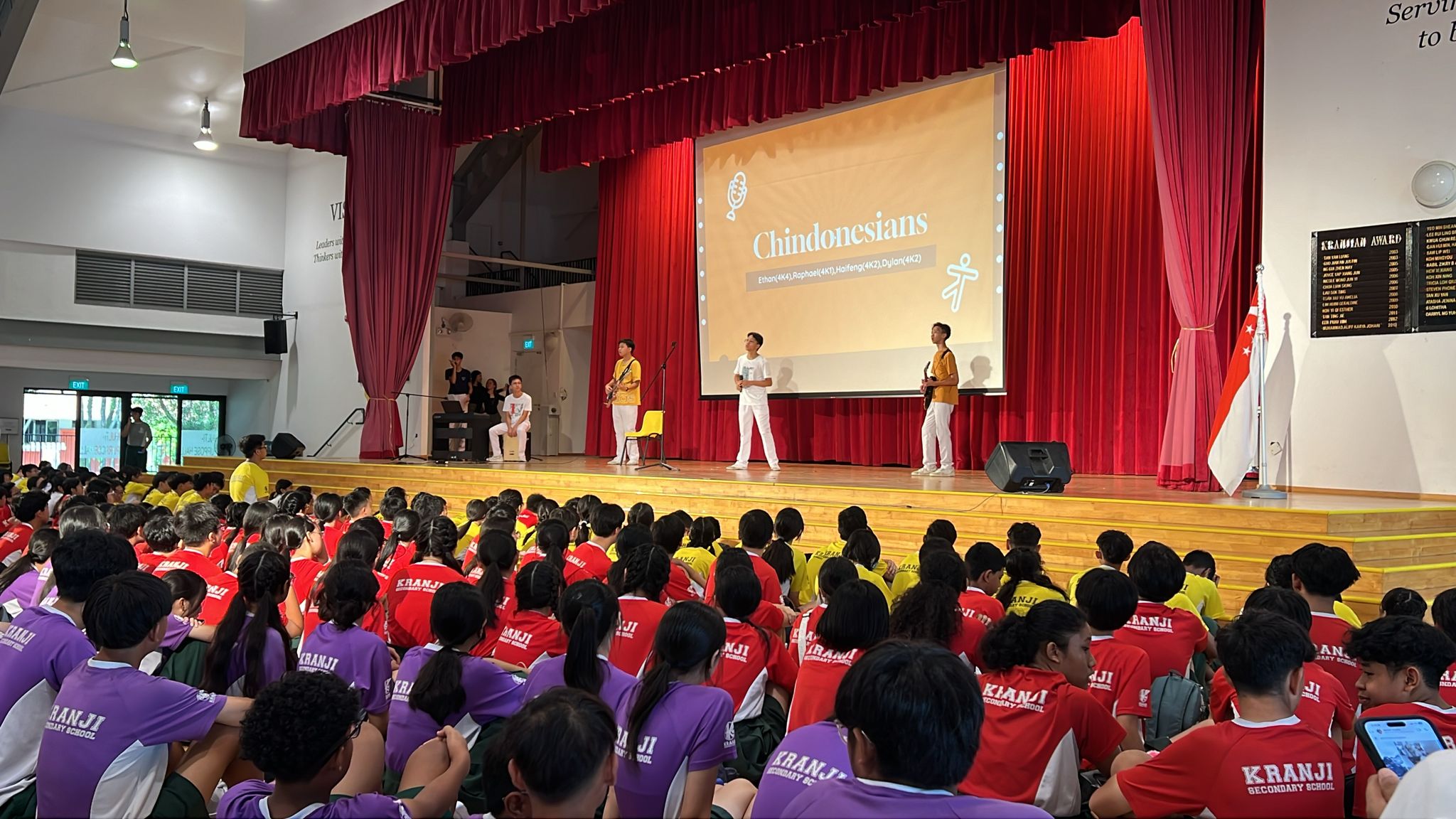
Art Unit
Our Art Programme promotes creativity, self-expression, critical thinking, and problem-solving. It equips students with 21st-century skills through traditional and contemporary mediums, including painting, drawing, photography, digital, and mixed media.
At Kranji Secondary, learning extends beyond the classroom, with students participating in art competitions to gain experience and recognition for their talents. Learning journeys to museums expose them to local and international art, fostering a deeper appreciation for the arts and cultural heritage.
As students progress through Upper Secondary, they develop their skills and explore personal themes through advanced projects. They engage in deeper conceptual thinking when they learn more about mediums in depth. In preparation for future opportunities, students are encouraged to develop their own style and prepare portfolios.
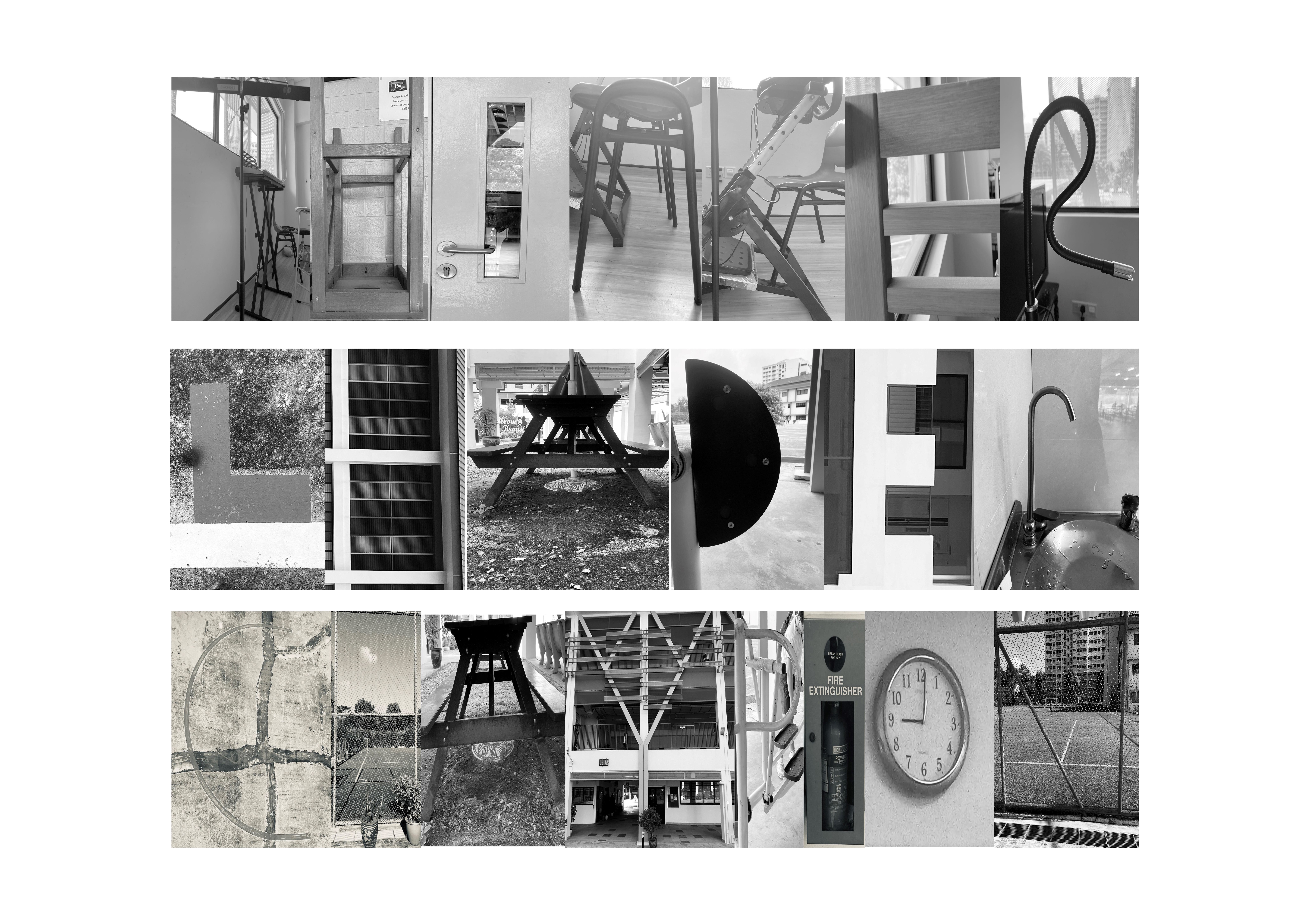
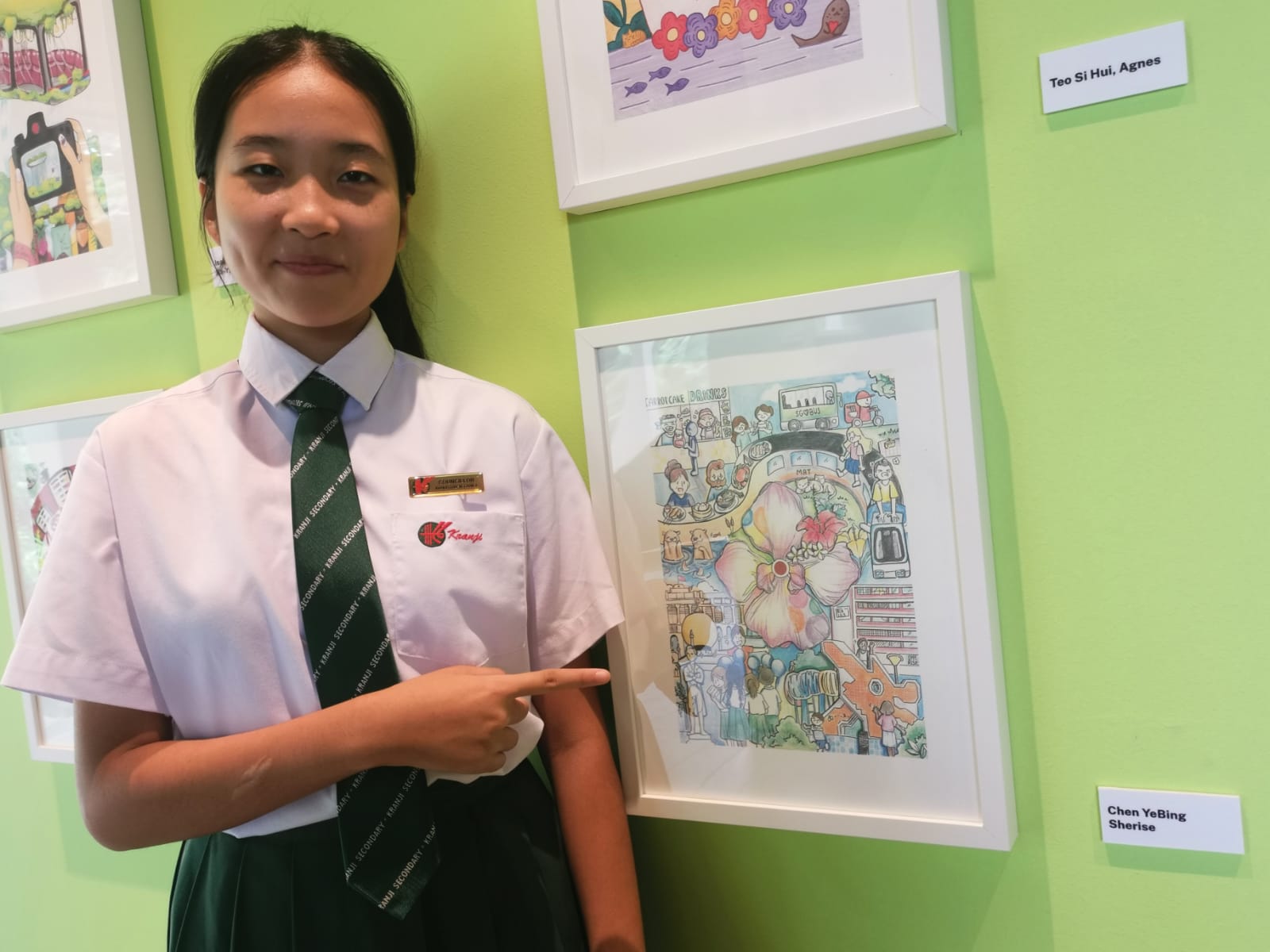
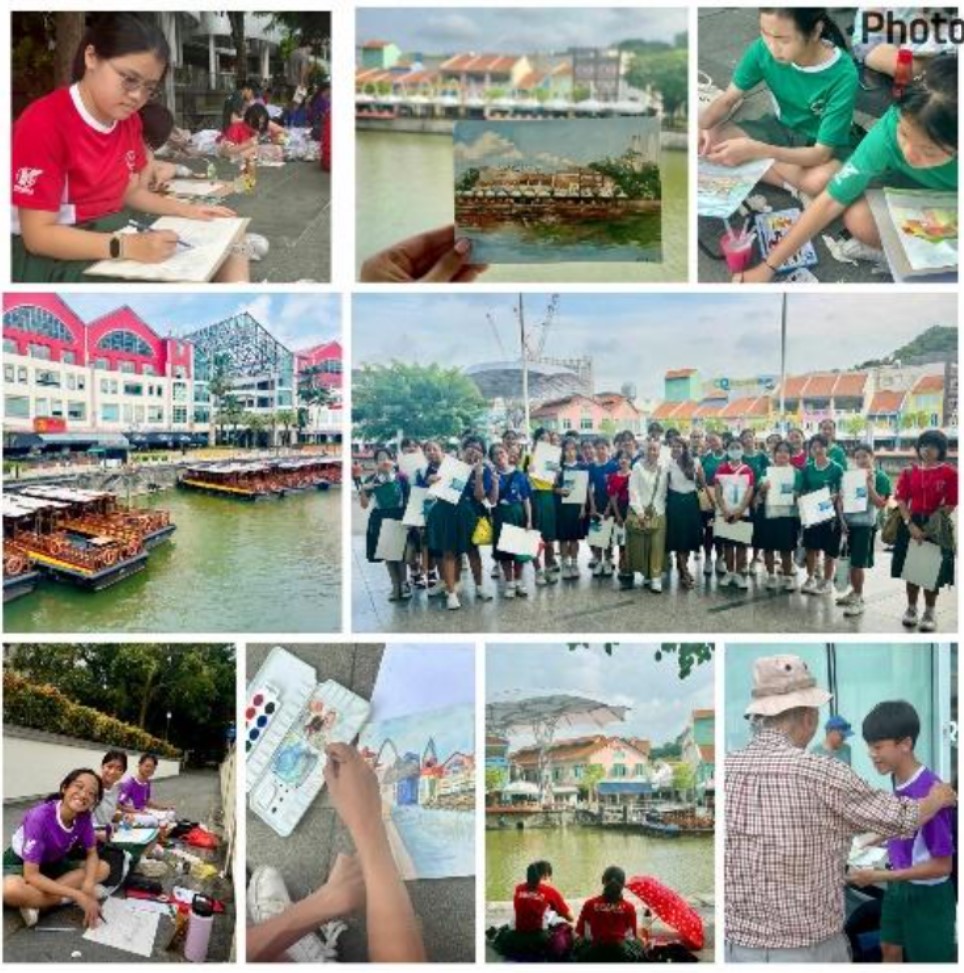
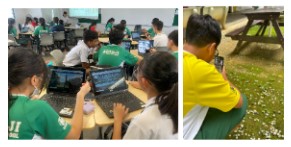
Integrating technology in Art lessons Secondary 1 Photography Lessons
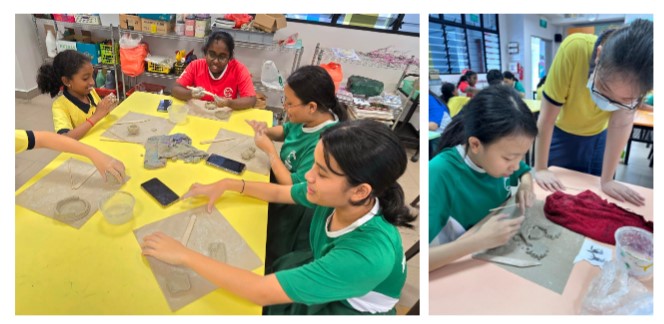
Ceramics workshop collaboration with Kranji Primary School
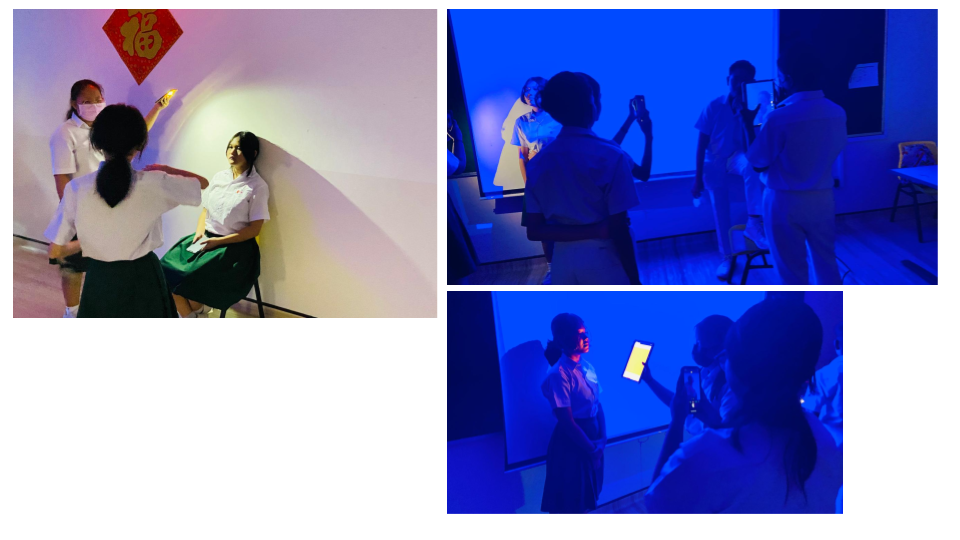
Collaboration on a photography assignment

Mini coursework critique session
D&T Unit
Design and Technology (D&T) focuses on nurturing creativity, design thinking, and problem-solving skills. Through hands-on learning and prototyping, students explore real-world challenges, applying concepts from STEM education to develop innovative solutions. This subject encourages critical thinking and empowers students to bring their ideas to life.
The unit also incorporates projects that utilize recycled materials, such as using recycled bottles for creating mock-ups. This approach aligns with our commitment to sustainability and supports the principles of a circular economy, as well as the Singapore Green Plan 2030.
To complement the curriculum, students are exposed to various workshops that develop their 21st Century Competencies (21CC) and participate in design competitions to expand their understanding beyond the D&T subject.
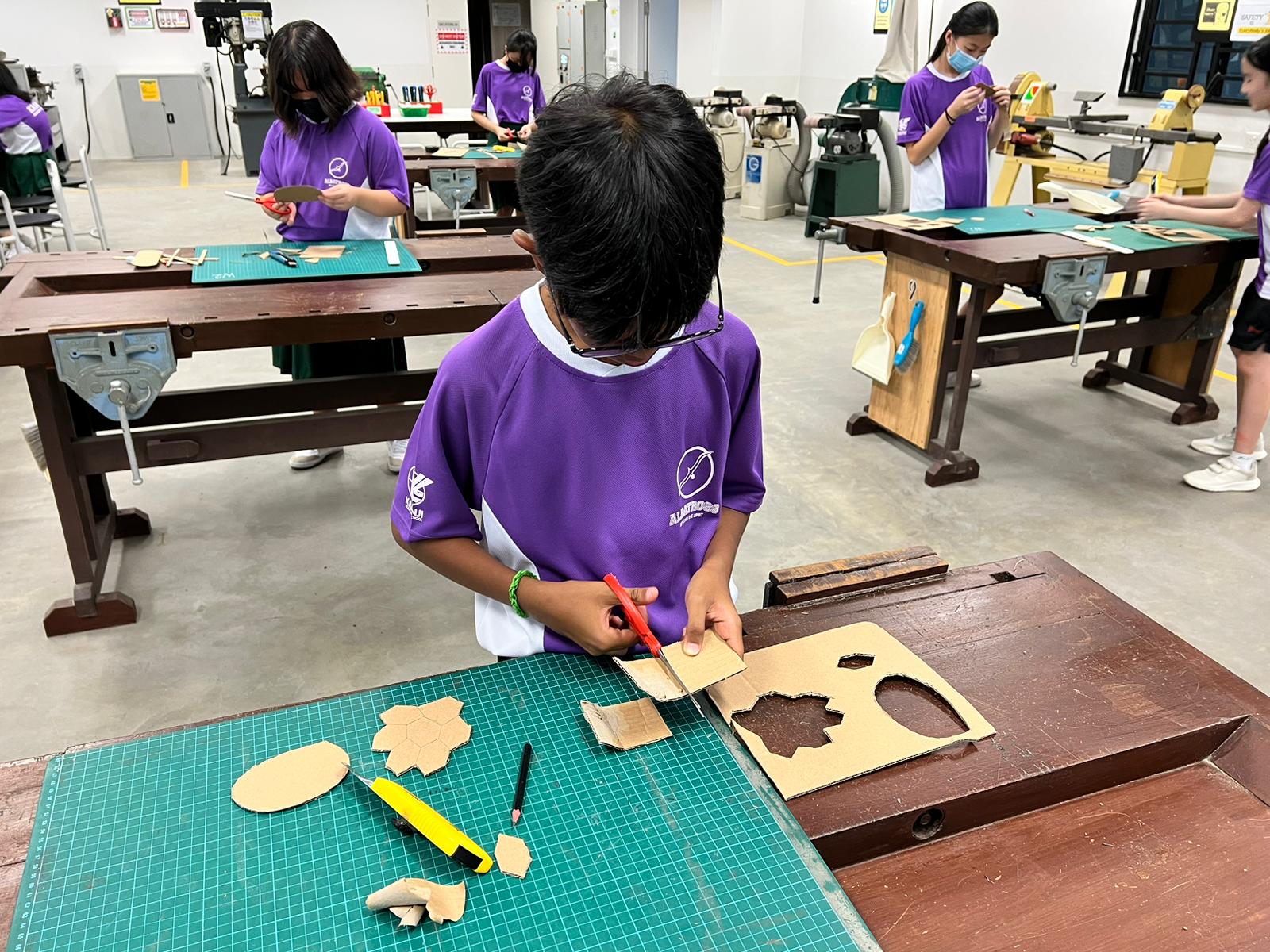

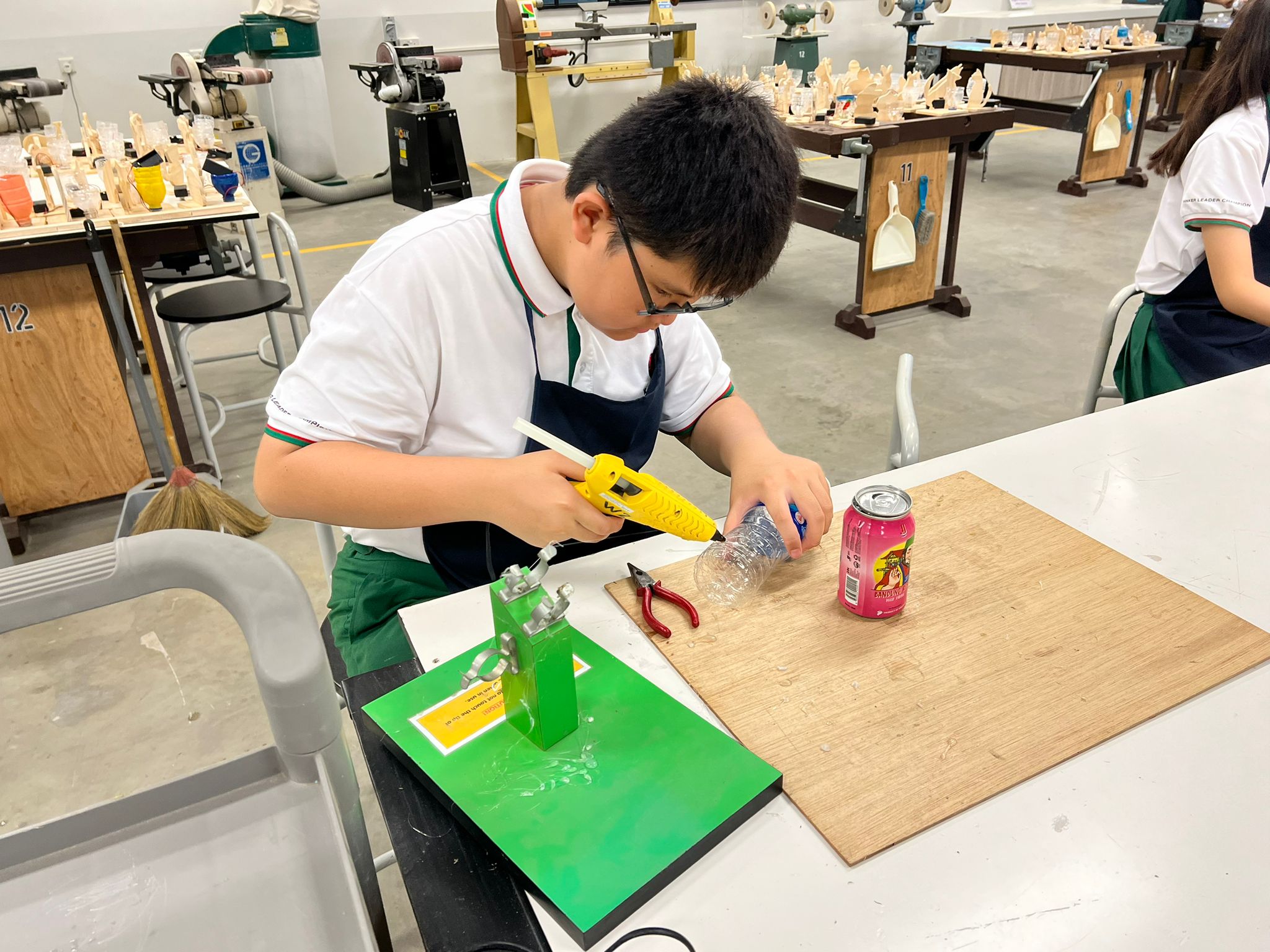
NFS Unit
The Nutrition and Food Science (NFS) unit aims to educate students with knowledge in Nutrition & Health, Food Literacy, Consumer Literacy and Food Science. We aim to provide our graduating students with a foundation that can be useful if they would like to pursue food sciences or other food related courses during their tertiary education.
Our Curriculum
In our lower secondary FCE FSBB classroom,
we welcomed a mix of Secondary 1 learners (G1, G2, G3) and adopted Differentiated
Instruction (DI) alongside EdTech to address their diverse readiness levels
and learning paces. Eg: We customized gamified lesson packages on SLS for
topics like food lab safety and hygiene, and used Pear Deck for interactive
lessons on nutrients and balanced diets.
Food and Consumer Literacy
Lower and upper secondary
students engaged in coursework projects focused on executing dishes that
meet the nutritional needs of various age groups, showcasing their plating
and garnishing skills. Aligned with the school’s Applied Learning Program
on sustainable living and SDG 12 (responsible consumption and production),
students explored the circular economy by repurposing food waste into resources
like fertilizer. They harvested fresh produce from Kranji’s Edible Garden
for their dishes and, in collaboration with the Science Department, Secondary
3 NFS students sampled fish from the school's hydroponic garden to enhance
their understanding of sustainable food practices.
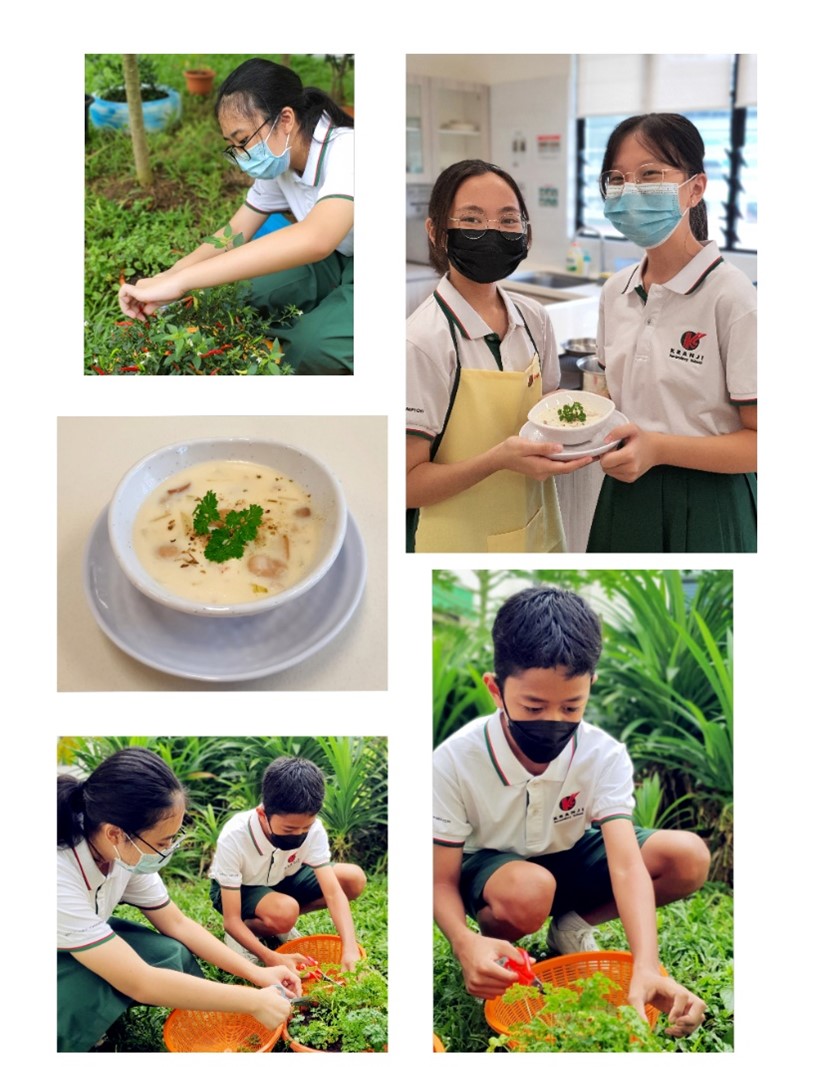
NFS students harvesting parsley and pandan leaves for practical lessons
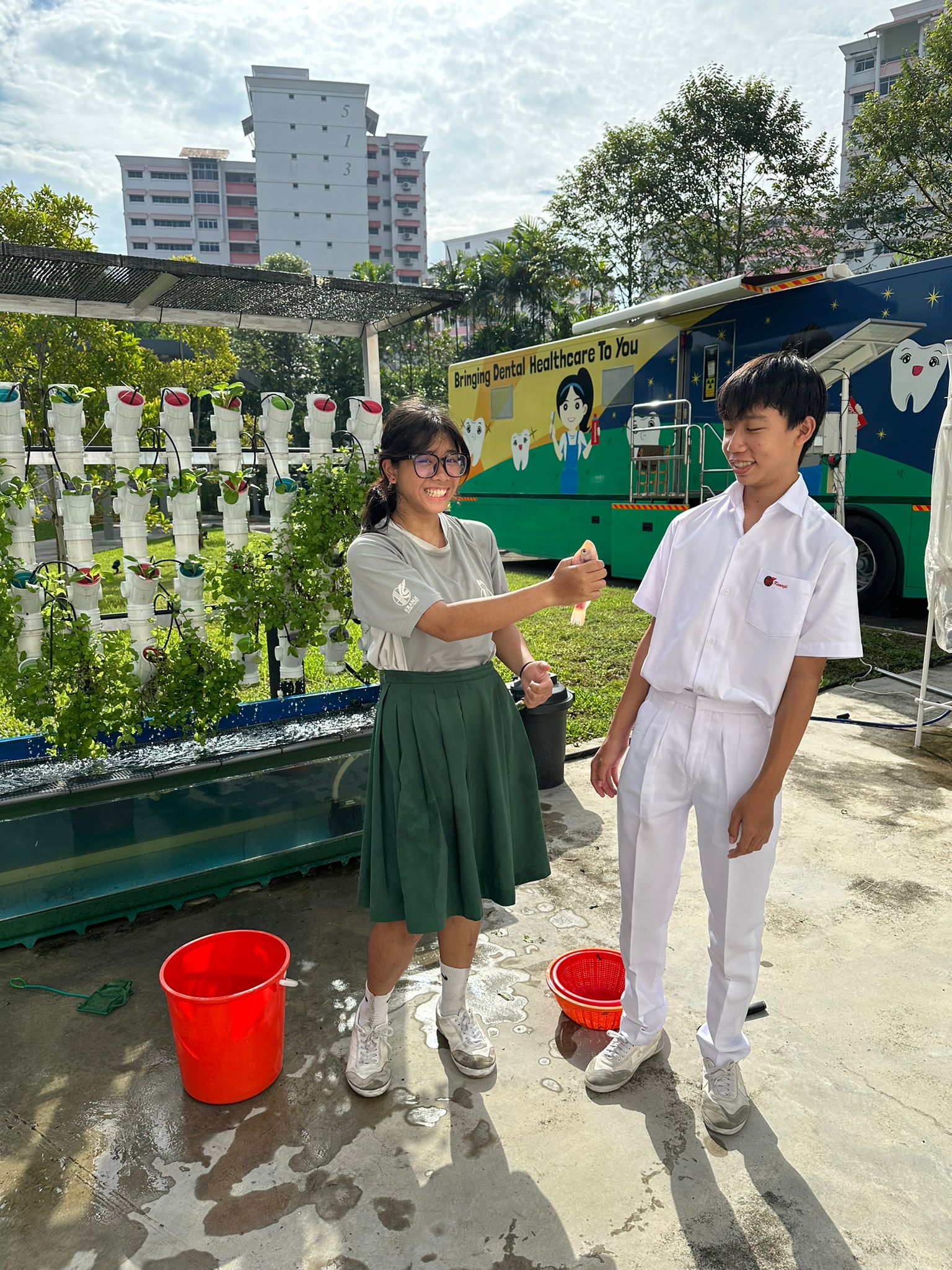
Sec 3 NFS students catching fishes from aquaponic pond
Baking and Culinary Competition
Each year, students participate in cooking and baking competitions that allow them to apply their nutritional knowledge by creating innovative recipes for different age groups. They demonstrate their culinary skills and presentation abilities before a judging panel. These experiences help students apply what they’ve learned in FCE/F&N lessons and highlight the subject's relevance in their daily lives.
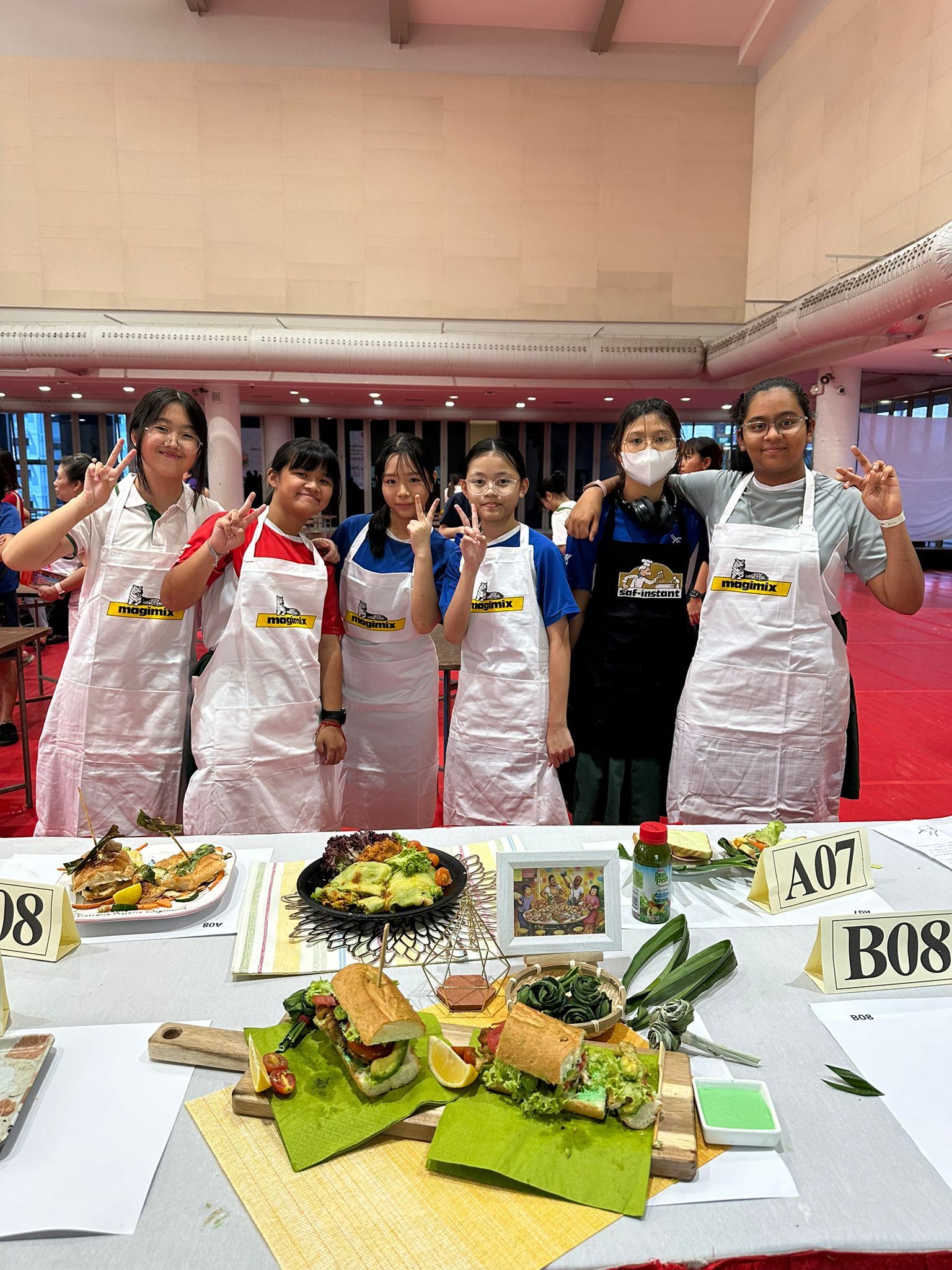
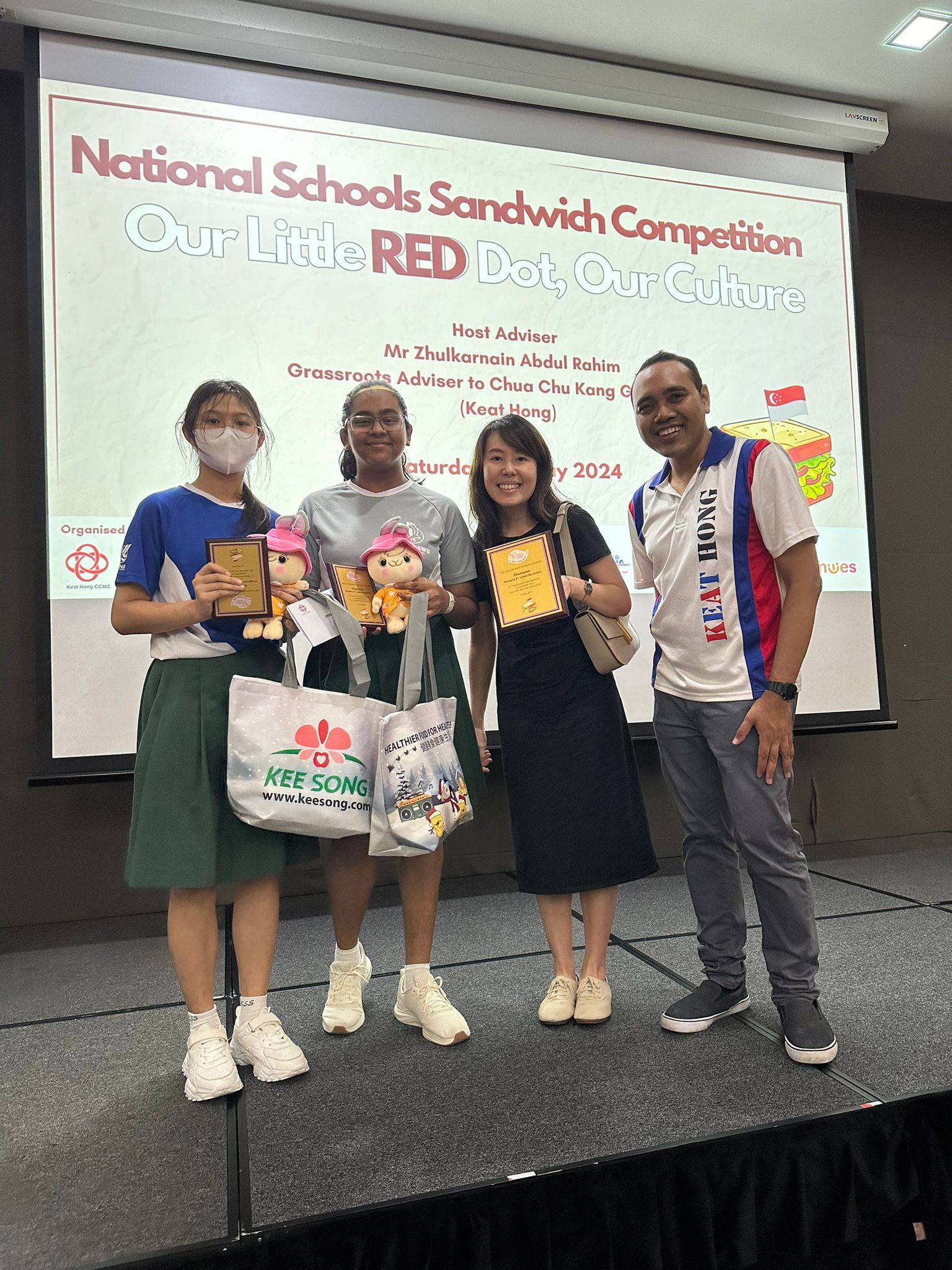
Music Unit
The Music program aims to nurture students' creative expression through a variety of music-making experiences while fostering an appreciation for music from different cultures. Over the 2-year Lower Secondary Music curriculum, students will develop both technical and musical skills.
In Sec 1, students will learn basic keyboard and ukulele skills through instrumental modules, which also introduce core elements of music for a well-rounded learning experience. Ensemble playing is a key feature, providing opportunities for students to showcase their progress through performances.
The school will also be introducing a Performance Art-Based Learning program for the entire Secondary One cohort. This initiative allows students to experience live performances by professional artists at cultural venues, helping to deepen their understanding of cultural and heritage identity.
In Sec 2, students will advance their instrumental abilities and deepen their understanding of musical concepts. They will explore song arrangement, learning about genres, instrumentation, and music technology. The program also includes a Jam Band module, where students collaborate in small groups to perform a chosen song for a live audience, with opportunities to record their performances for their portfolio.
